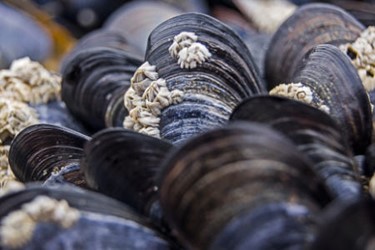D.C. Adds Mussel To Federal Ruling On E. coli Limits


With a federal judge deciding it needs to do a better job to combat E. coli discharge into its waterways, Washington, D.C. could be turning to an unlikely ally in its struggle to clean up local rivers: mussels.
For years, D.C. has operated under maximum daily levels of E. coli discharge into the local Anacostia and Potomac rivers that were variable and based on a monthly maximum. Those rules have now changed following a challenge from environmental groups that argued these standards meant that on any given day, E. coli levels could be dangerously high.
“U.S. District Judge Christopher R. Cooper found that the EPA failed to approve absolute maximum levels of E. coli that can be discharged into the District’s waters on any given day,” WUSA reported. “Cooper’s ruling keeps the current E. coli discharge standards in place for one year to allow the District to develop new standards or the EPA to revisit its regulations.”
E. coli can be a hazard to local wildlife or during sewage overflows and should be top-of-mind for any drinking water operations that pull from a source body where it is present.
“E. coli is an intestinal bacteria that can cause severe abdominal cramps, bloody diarrhea and vomiting,” per WUSA. “Humans can be exposed to the bacteria by eating raw vegetables or uncooked meat, or by coming into contact with contaminated water — for examples, sewage overflows caused by heavy rain.”
As D.C. reevaluates the amount of E. coli that is discharges into its waterways, there’s evidence to suggest that freshwater mussels have been helping to combat contamination after the fact. Following a year-long pilot test, D.C.’s Department of Energy and Environment has recently awarded a $400,000 grant to the Anacostia Watershed Society to continue stoking the river with the mollusks.
“Last week, staffers and volunteers with the nonprofit placed the creatures in 28 floating baskets at seven sites along the Anacostia River — six in D.C., and one in Maryland — with varying microhabitat conditions,” according to DCist. “Much like oysters, mussels can filter large quantities of water (between 10-20 gallons daily) and they eat bacteria like E. coli.”
Hopefully, the combination of reduced E. coli discharges and more cleanup help from mussels will leave much healthier waterways in D.C.
To read more about how discharge rules affect wastewater treatment operations, visit Water Online’s Wastewater Regulations And Legislation Solutions Center.
